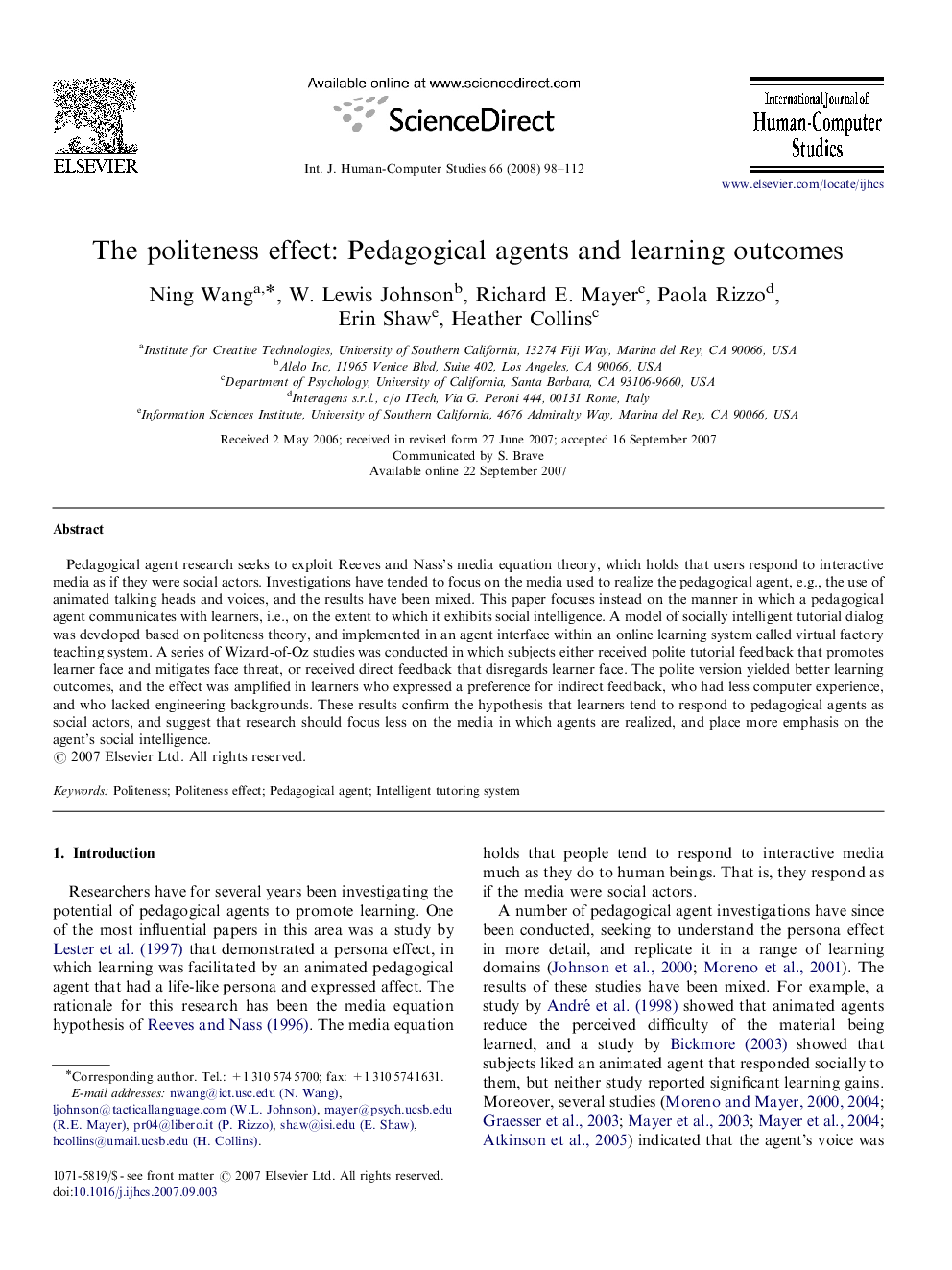| Article ID | Journal | Published Year | Pages | File Type |
|---|---|---|---|---|
| 401022 | International Journal of Human-Computer Studies | 2008 | 15 Pages |
Pedagogical agent research seeks to exploit Reeves and Nass's media equation theory, which holds that users respond to interactive media as if they were social actors. Investigations have tended to focus on the media used to realize the pedagogical agent, e.g., the use of animated talking heads and voices, and the results have been mixed. This paper focuses instead on the manner in which a pedagogical agent communicates with learners, i.e., on the extent to which it exhibits social intelligence. A model of socially intelligent tutorial dialog was developed based on politeness theory, and implemented in an agent interface within an online learning system called virtual factory teaching system. A series of Wizard-of-Oz studies was conducted in which subjects either received polite tutorial feedback that promotes learner face and mitigates face threat, or received direct feedback that disregards learner face. The polite version yielded better learning outcomes, and the effect was amplified in learners who expressed a preference for indirect feedback, who had less computer experience, and who lacked engineering backgrounds. These results confirm the hypothesis that learners tend to respond to pedagogical agents as social actors, and suggest that research should focus less on the media in which agents are realized, and place more emphasis on the agent's social intelligence.
